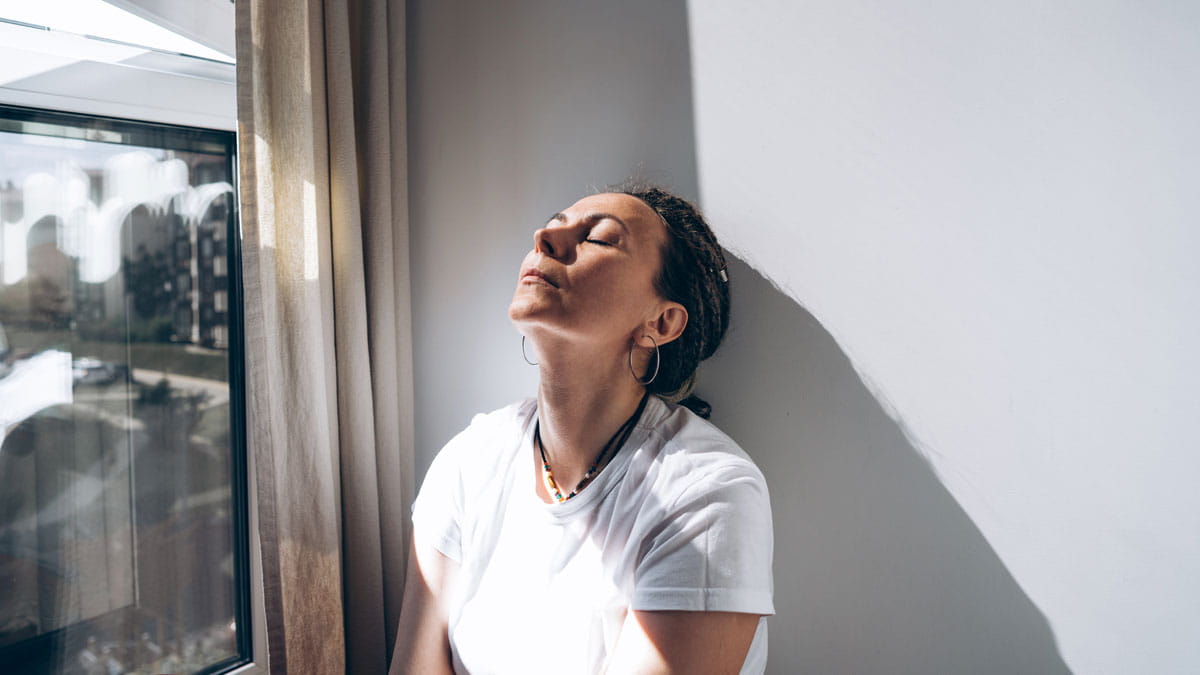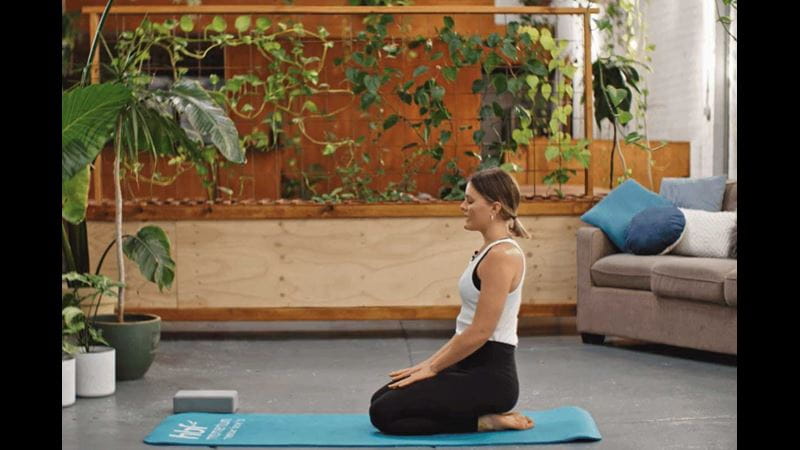Blog article
How stress physically affects the body and how a physio can help

What is stress?
Stress is your body’s natural response to any demand or challenge – whether it’s a looming deadline, a tough conversation, or even something exciting like a big event. When you’re stressed, your brain triggers a cascade of hormones, including adrenaline and cortisol, to help you react quickly. This is often called the ‘fight or flight’ response, and it’s designed to keep you safe in dangerous situations.1,2,3,4But in modern life, stress isn’t always about running from danger. It can be triggered by work pressures, family responsibilities, financial worries, or even just a packed schedule. And when stress becomes constant, it can start to take a toll on your body.1,2,3,4
Cortisol: The stress hormone
Cortisol is one of the main hormones released during stress. In small doses, it’s helpful - it gives you energy, sharpens your focus, and helps your body recover from challenges. But when stress is ongoing, your body can end up with too much cortisol for too long.1,4
High or prolonged cortisol levels have been linked to:1,4
- Trouble sleeping or feeling tired all the time
- Weight gain, especially around the belly
- High blood pressure
- Lowered immunity (getting sick more often)
- Difficulty concentrating or remembering things
That’s why learning how to manage stress—and keep cortisol in check—is so important for your overall health.
Physical symptoms of stress
Stress doesn’t just affect your mood. It can show up in your body in all sorts of ways, including:1,2,3,4
- Headaches and muscle tension: Stress causes your muscles to tighten, which can lead to aches, pains, and tension headaches.
- Digestive issues: You might notice an upset stomach, nausea, or changes in appetite. Chronic stress can even contribute to conditions like irritable bowel syndrome (IBS).
- Heart palpitations and high blood pressure: Your heart beats faster and your blood pressure rises, which is fine short-term but can be risky if it happens often.
- Sleep problems: Stress can make it hard to fall asleep or stay asleep, leaving you feeling exhausted.
- Weakened immune system: You might find yourself catching colds more easily or taking longer to recover from illness.
- Skin and hair changes: Stress hormones can make your skin more sensitive or oily, and may even contribute to hair loss.
How stress affects the body (a closer look)
When stress becomes chronic, it can impact nearly every system in your body:1,3,4
- Brain and memory: High cortisol can shrink parts of the brain involved in memory and learning, making it harder to concentrate or remember things.
- Heart and blood vessels: Ongoing stress raises your risk of high blood pressure, heart disease, and stroke.
- Immune system: Chronic stress can suppress your immune response, making you more vulnerable to infections.
- Digestive system: Stress can disrupt digestion, leading to stomach pain, bloating, or changes in bowel habits.
- Hormones and metabolism: Stress can affect everything from your blood sugar to your reproductive hormones, sometimes causing weight gain or changes in libido.
Stress management techniques
The goal isn’t to eliminate stress completely, but to find healthy ways to manage it and protect your body. Here are some evidence-based strategies:1,2,3,4,51. Move your body
Regular physical activity is one of the best ways to lower stress and reduce cortisol. You don’t have to run marathons either – walking, yoga, dancing, or even gardening can help. Exercise releases endorphins, your body’s natural mood boosters, and helps burn off excess stress hormones.2. Practice relaxation
Set aside time each day to relax, even if it’s just for a few minutes. Try deep breathing, meditation, progressive muscle relaxation, or mindfulness. These techniques help calm your nervous system and bring your body back into balance.3. Prioritise sleep
Good sleep is essential for stress recovery. Aim for a consistent bedtime, create a calming routine, and avoid screens before bed. If stress is keeping you up, try writing down your worries or practicing relaxation exercises before sleep.4. Eat well and stay hydrated
A balanced diet supports your body’s ability to cope with stress. Focus on whole foods, plenty of fruits and vegetables, lean proteins, and healthy fats. Limit caffeine and alcohol, which can make stress symptoms worse.5. Connect with others
Talking to friends, family, or a professional can help you process stress and feel less alone. Social support is a powerful buffer against the negative effects of stress.6. Set boundaries and take breaks
Learn to say no when you need to, and give yourself permission to take breaks – especially if you’re feeling overwhelmed at work or home.7. Seek professional help when needed
If stress is affecting your health, relationships, or daily life, don’t hesitate to reach out to a GP, psychologist, or counsellor. There’s no shame in asking for support.How a physio can help with stress
“Stress is one of the most common contributing factors we see in clinic – though it often shows up as something else, like headaches, neck and shoulder tension, fatigue, or even digestive issues,” says HBF physiotherapist, Jakub Chudy.“But it’s rarely just about the mind. Stress can have real, physical effects on the body. In a consult, we look at how stress might be affecting your posture, breathing, muscle tension, and movement patterns. We’ll often ask about your sleep, energy, and daily routines, because these all play a role in how your body responds to stress.
“Treatment might include hands-on therapy to release tight muscles, guided relaxation or breathing exercises, and advice on gentle movement or stretching routines. We also talk about practical stress management strategies – like building regular physical activity into your week, practicing relaxation techniques, and making time for things you enjoy. The goal isn’t just to relieve symptoms, but to help your body recover and build resilience for the future.
“I always encourage patients to listen to their bodies, take regular breaks, and find small ways to unwind each day. Even simple changes, like a short walk, a few deep breaths, or a good night’s sleep, can make a big difference in how you feel, both physically and mentally.”
Sources:
1 Healthdirect: Stress
2 Better Health Channel: Stress
3 Australian Institute of Health and Welfare: Stress and trauma
4 EXCLI Journal: The impact of stress on body function: A review
5 Australian Institute of Health and Welfare: Physical activity
This article contains general information only and does not take into account the health, personal situation or needs of any person. In conjunction with your GP or treating health care professional, please consider whether the information is suitable for you and your personal circumstances.


